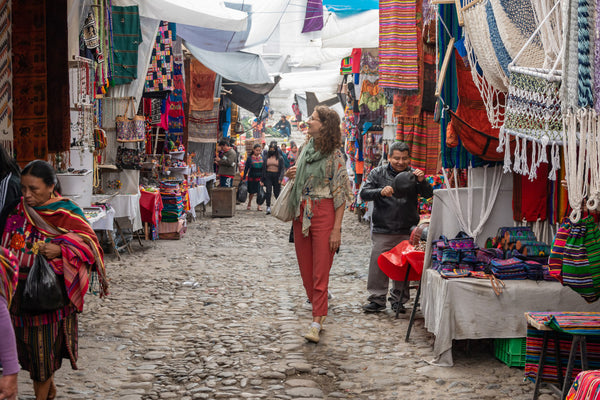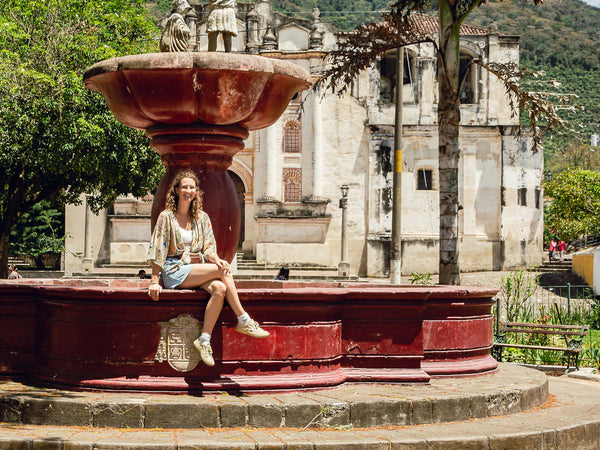What do you love most about your work?
My research is such a big part of what I do, and I think when I find out a great material source for a product I want to develop knowing that it is truly sustainable, that gets me so excited. But my favourite part of what I do is definitely when I get to do a talk at a school, seeing the next generation light up from my stories and experiences is really rewarding and I believe examples of female founders and people who are working in sustainability are so important to share.

How did you get to where you are now?
Through following my passions and allowing myself to change course when something no longer fits. At school I was pushed in a very academic direction, which lead me to doing a physics degree at Exeter University. Though I still chose Fine Art alongside my maths and physics A Levels, as I have always loved creativity.
After my degree I wasn't sure a PhD, graduate scheme or academic role was for me so I decided to follow my interest in sustainable business. I did an internship with a sustainable hummus company, ChicP, and also became a brand ambassador for Pip & Nut, who make sustainable nut butters. There are many more twists and turns that got me to the point of starting Coconut & Cotton: working in web development, events management, business admin and even floristry. The mixture of experience meant I had the confidence to pursue my own business.
What would your advice be to any women considering setting up on their own?
Try to identify what blocks you may be experiencing. By block I mean a particular aspect or task of setting up that makes you feel scared. You really don't need to be "qualified" in business to start up. You learn as you go, and sometimes it's about starting and being prepared for the inevitable mistakes that you will make. I've made some shockers in my time, but it's about building that resilience to know that it's the same for everybody and you just have to keep going and learning from those experiences.
"Nothing is really a failure, it's a lesson. If you just embrace that as part of the process it's not really scary at all."
I'd also get networking as much as you can, at business events, coworking spaces and local support groups. Every council will have some form of business hub with events and mentors you can connect with. Having that community really helps through successes and challenges.

